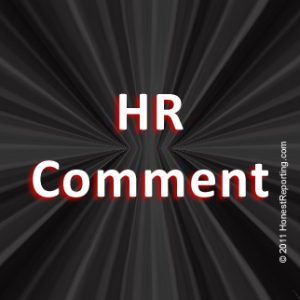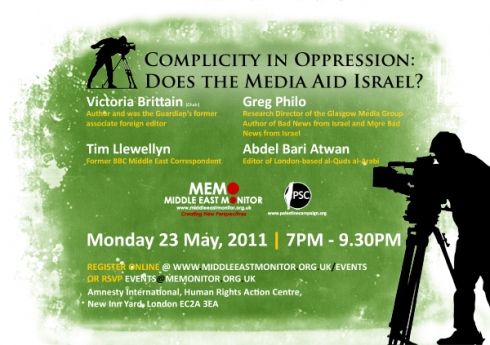 In November 2009, I found myself “exposed” by Channel 4’s Dispatches program as part of a shadowy conglomerate of Israel advocacy organizations that pressure mainstream media outlets in the UK, such as the BBC, into submission.
In November 2009, I found myself “exposed” by Channel 4’s Dispatches program as part of a shadowy conglomerate of Israel advocacy organizations that pressure mainstream media outlets in the UK, such as the BBC, into submission.
Granted, with over 160,000 HonestReporting subscribers worldwide, a flood of emails to the BBC or The Guardian is to be expected. Nevertheless, once the initial shock of being outed as a senior Elder of Zion had subsided, I was able to laugh at journalist Peter Oborne’s ridiculous conclusions that Israel and its supporters wielded an immense amount of power over the media.
Greg Philo’s article that claims to quantifiably prove that Israeli spin doctors have managed to get a hold of the message in the media is yet another piece of anti-Israel agitprop that has no basis in reality.
While I cannot claim to be a disinterested observer when it comes to the Arab-Israeli conflict (and I don’t), Philo has no right to pass his “findings” off as those of a neutral academic. Only this month, Philo appeared on a panel discussion organized by Middle East Monitor (MEMO) entitled “Complicity in Oppression: Does the Media Aid Israel?”
As Harry’s Place points out:
MEMO is the pro-Hamas propagandas operation of Daud Abdullah. He is the former deputy secretary general of the Muslim Council of Britain, a signatory of the infamous Istanbul Declaration (pdf), and a fanatical Israel hater. Abdullah’s deputy at MEMO is Ibrahim Hewitt, chairman of Interpal, another British charity that serves Hamas. On MEMO’s pages you will find work such as this foul accusation of dual loyalty against the British ambassador to Israel, support for blood libel tales, and piece after piece by Abdel Bari Atwan, the journalist who has said he would “dance in Trafalgar Square” if Israel were annihilated by Iran in a nuclear strike.
Indeed, Abdel Bari Atwan also appeared on the panel alongside veteran Israel-hater and former BBC journalist Tim Llewellyn.

Having established the company Philo keeps, he makes it clear in his article that his conclusions are based on a default worldview that sees Israel and its narrative as being firmly in the wrong.
Statements such as “The underlying reasons for the conflict were absent, such as being driven from their homes and land when Israel was created” or the assumption that the Israeli images of soldiers being attacked by passengers aboard the Mavi Marmara were not what they seemed demonstrate Philo’s less than objective starting point for his study.
For example, according to Philo, a “majority [of those questioned] believed Palestinians broke the ceasefire that existed before the December attack and did not know Israel had attacked Gaza during it, in November 2008, killing six Palestinians.”
Yet again Philo works from slanted assumptions, ignoring the 329 rockets and mortar shells fired at Israel during the six month ceasefire as well as Hamas unilaterally renouncing the ceasefire by firing hundreds more rockets into Israel in the days preceding Israeli military actions.
Indeed, Philo is actually part of the problem. The reaction to recent events, including in the media, have led many Israelis to believe that they are on the receiving end of a campaign of delegitimization. Part of this involves such an extreme level of criticism of military operations as to revoke Israel’s very right to physical self-defense.
Likewise, Philo’s agenda can also be seen as an attack on Israel’s legitimate right to defend itself through public diplomacy, a right exercised by every Western democracy with a free press. Why does Philo find the creation of an Israeli National Information Directorate to be so sinister? Such a body was only created in response to the multitude of uncoordinated and sometimes conflicting messages that so often failed to effectively counter the carefully controlled messaging emanating from the Arab and Palestinian side.
If Philo were to spend some time in Israel, perhaps he would be surprised at the amount of hand wringing and anxiety over the country’s perceived failure to effectively present its case. And why, if Israel is, according to him, so effective in its PR, have polls consistently ranked Israel as one of the most negatively viewed countries in the world alongside such paragons of virtue as Iran, North Korea and Pakistan?
Why is Israel the only country that is not allowed to defend itself in the court of public opinion and the media? After all, US and British armed forces in Afghanistan also run a highly organized media operation. Yet, while contrary to Philo’s assertions, Israeli explanations for military operations are treated with scorn by many media outlets, an erroneous airstrike by US fighters against unarmed Afghan civilians is not treated in the same way.
-

Greg Philo
Philo complains that a UN report into the Gaza flotilla was barely covered by the media. However, the coverage of the Turkel Report into the Mavi Marmara incident illustrates how some media is unprepared to accept that Israel could ever be in the right. As the report exonerated the IDF, some media outlets such as the BBC and Independent attempted to portray the Israeli commission of inquiry as flawed simply by virtue of the fact that it was Israeli appointed. This, despite the presence of respected international observers as part of the commission.
Philo refers to some BBC headlines that he believes are the result of effective Israeli messaging. Well, for every two BBC headlines that get it right, HonestReporting has identified countless times where the headlines have demonstrated a total disregard for the facts and could no way be seen to accurately reflect Israeli messages. It is quite offensive to suggest, as Philo appears to, that Israel has somehow managed to exercise any level of control over the media.
Let me make it quite clear – I am certainly not accusing Philo of anti-Semitism but his insinuations are reminiscent of the anti-Semitic canard of Jewish control over the media. They are also an insult to the media itself. I don’t need to read a pseudo-scientific study to find out what the media’s prevailing attitude towards Israel is. Presumably, The Guardian, according to Philo’s criteria, would be the sole outpost of media truth when it comes to the reporting of Israel. I would certainly take issue with that assumption and Greg Philo’s faulty and insidious analysis.


